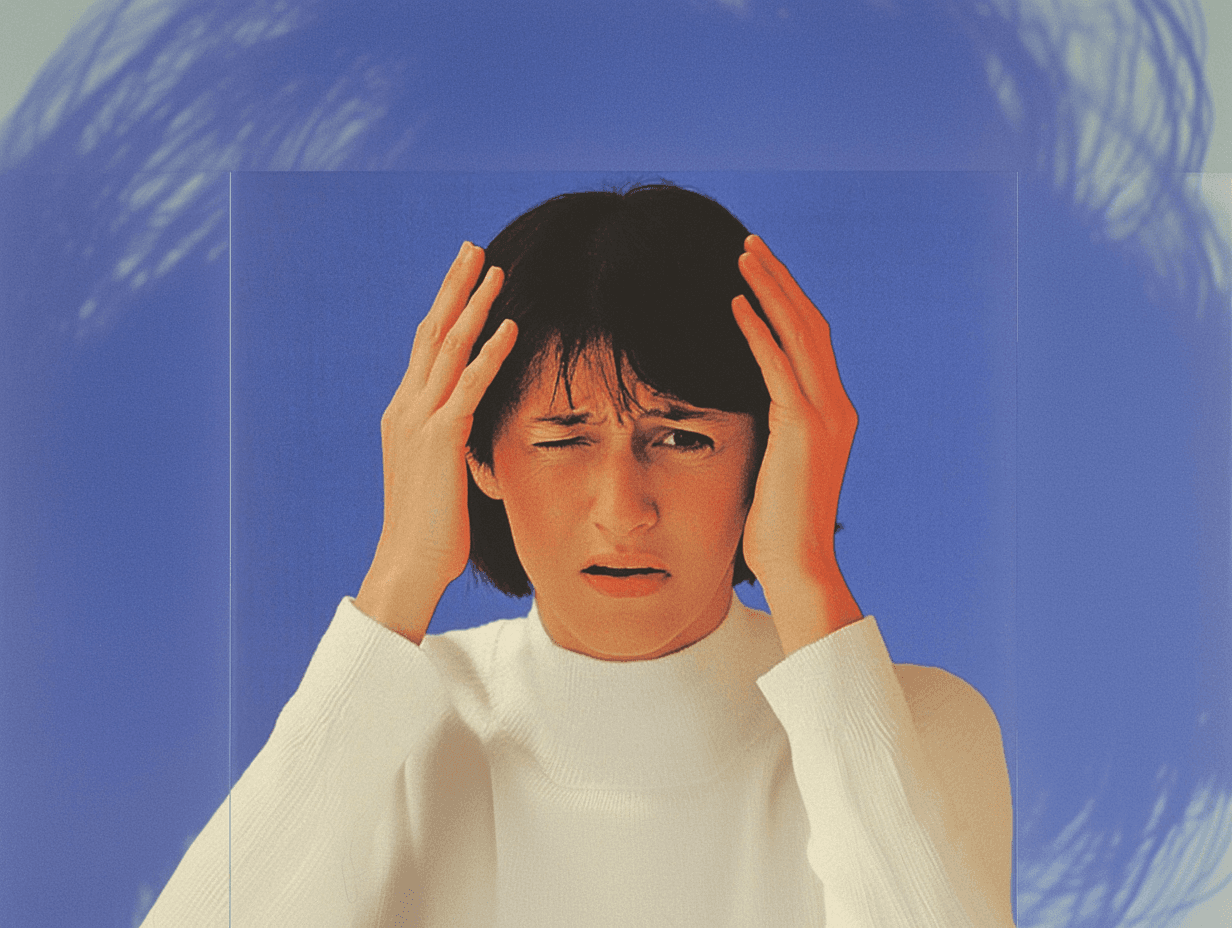The 34 Symptoms of Perimenopause: A Comprehensive Guide
Nov 25, 2024
Perimenopause, the transitional phase leading up to menopause, can bring about a wide range of physical and emotional changes. As hormone levels fluctuate, women may experience a variety of symptoms that can significantly impact their daily lives. Understanding these symptoms is crucial for seeking appropriate support and managing this natural transition effectively.
What is Perimenopause?
Perimenopause, also known as the menopausal transition, is the period of time when a woman's body begins its natural progression toward menopause. During this phase, which typically lasts several years, the ovaries gradually produce less estrogen, leading to hormonal imbalances and various symptoms. The average age for the onset of perimenopause is around 45, but it can start as early as the late 30s or as late as the early 50s.
The 34 Most Common Symptoms of Perimenopause
Every woman's experience with perimenopause is unique, and the symptoms can vary in severity and duration. Here are the 34 most common symptoms associated with this transitional phase:
1. Irregular Periods
One of the earliest and most noticeable signs of perimenopause is a change in menstrual cycle patterns. Periods may become irregular, with longer or shorter intervals between cycles, heavier or lighter flow, or skipped periods. This is often the first indication that a woman is entering the perimenopausal stage.
2. Hot Flashes
Hot flashes are sudden feelings of intense body heat, often accompanied by sweating, flushing, and a rapid heartbeat. These can occur at any time, day or night, and can be disruptive to daily activities and sleep. Hot flashes are one of the most well-known and common symptoms of perimenopause.
3. Night Sweats
Similar to hot flashes, night sweats involve excessive sweating during sleep, which can lead to disrupted sleep patterns and fatigue. These can be particularly troublesome, as they can interfere with the quality of rest and exacerbate other symptoms.
4. Mood Swings
Fluctuating hormone levels can contribute to mood swings, irritability, and emotional ups and downs during perimenopause. Women may experience sudden shifts in mood, ranging from feelings of sadness or anxiety to anger or euphoria.
5. Anxiety and Depression
Some women may experience increased levels of anxiety or symptoms of depression during this transitional phase. The hormonal changes can affect neurotransmitter levels in the brain, leading to mood disturbances and emotional imbalances.
6. Brain Fog
Difficulty concentrating, memory lapses, and a general feeling of mental fogginess are common complaints during perimenopause. Hormonal fluctuations can impact cognitive function, making it harder to focus or recall information. Check out our blog on the best supplements for menopause brain fog to help regain clarity.
7. Sleep Disturbances
Hot flashes, night sweats, and hormonal changes can disrupt sleep patterns, leading to insomnia or poor sleep quality. Lack of quality sleep can exacerbate other perimenopausal symptoms and contribute to fatigue and irritability.

8. Vaginal Dryness
Declining estrogen levels can cause vaginal dryness, which can lead to discomfort during sexual activity and an increased risk of infections. This can also contribute to painful intercourse and a decreased libido.
9. Urinary Incontinence
Some women may experience urinary incontinence or a sudden, strong urge to urinate during perimenopause due to weakened pelvic floor muscles. This can be embarrassing and disruptive to daily activities.
10. Weight Gain
Hormonal changes during perimenopause can contribute to weight gain, particularly around the abdomen and hips. Fluctuations in estrogen and progesterone levels can affect metabolism and body fat distribution.
11. Hair Changes
Women may notice thinning hair or increased facial hair growth due to hormonal shifts. As estrogen levels decline, the balance between male and female hormones can change, leading to hair loss or unwanted hair growth.
12. Breast Tenderness
Fluctuating hormone levels can cause breast tenderness or discomfort. If you experience persistent breast pain after menopause, consult your healthcare provider, as discussed in our blog on when to worry about breast pain after menopause.
13. Headaches
Hormonal changes can trigger or worsen headaches or migraines during perimenopause. Check out our blog on menopause headaches: causes, relief, and strategies for helpful tips.
14. Joint and Muscle Pain
Some women experience increased joint and muscle pain or stiffness during perimenopause. Our blog on menopause and joint pain provides insights on managing this symptom.
15. Fatigue
Hormonal fluctuations, sleep disturbances, and other perimenopause symptoms can contribute to feelings of fatigue and low energy levels. Check out our blog on menopause fatigue: causes and solutions for helpful tips.
16. Skin Changes
Declining estrogen levels can lead to dryness, thinning, and loss of elasticity in the skin, as well as increased wrinkling. The skin may become drier and less supple, which can contribute to an aged appearance.
17. Digestive Issues
Some women experience digestive problems like bloating, constipation, or diarrhea during perimenopause. Hormonal changes can affect the digestive system, leading to discomfort and irregularity.
18. Dizziness
Hormonal changes can sometimes cause episodes of dizziness or vertigo. These episodes can be unsettling and may increase the risk of falls or accidents.
19. Allergies
Hormonal shifts during perimenopause may trigger or worsen allergies or sensitivities. Women may experience new or worsening allergic reactions to environmental triggers or certain foods.
20. Irregular Heartbeat
Some women may experience palpitations or an irregular heartbeat during this transitional phase. Hormonal fluctuations can affect the cardiovascular system, leading to changes in heart rate or rhythm.
21. Breast Cysts
Hormonal fluctuations can increase the risk of developing benign breast cysts. While not cancerous, these cysts can cause discomfort and may require medical attention.
22. Nausea
Nausea is a less common symptom that some women may experience during perimenopause. Our blog on can menopause cause nausea? explores this topic further.
23. Itching
Hormonal changes can sometimes cause itching or irritation in various parts of the body. Check out our blog on how to stop perimenopause itching for helpful tips.
24. Acne
Fluctuating hormone levels can trigger or worsen acne breakouts during perimenopause. Our blog on menopause acne: causes, treatment, and prevention provides insights on managing this issue.
25. Thinning Hair
Declining estrogen levels can contribute to thinning hair or hair loss during perimenopause. The hormonal changes can affect the hair growth cycle, leading to shedding or thinning of the hair.
26. Decreased Libido
Hormonal changes, vaginal dryness, and other perimenopause symptoms can lead to a decreased sex drive or libido. This can be a source of frustration and strain in intimate relationships.

27. Bladder Control Issues
Weakened pelvic floor muscles can cause urinary incontinence or a sudden, strong urge to urinate during perimenopause. This can be embarrassing and disruptive to daily activities.
28. Osteoporosis Risk
Declining estrogen levels can increase the risk of developing osteoporosis, a condition characterized by weakened bones and an increased risk of fractures. Maintaining bone health is crucial during this transitional phase.
29. Cardiovascular Changes
Hormonal shifts during perimenopause can affect cardiovascular health, potentially increasing the risk of heart disease or stroke. Monitoring and managing cardiovascular health is essential during this time.
30. Thyroid Imbalances
Some women may experience thyroid imbalances or changes in thyroid function during perimenopause. Thyroid disorders can contribute to weight gain, fatigue, and other symptoms.
31. Dry Eyes
Hormonal changes can lead to dry eyes or eye irritation in some women. This can cause discomfort, redness, and a feeling of grittiness in the eyes.
32. Tingling or Numbness
Hormonal fluctuations can sometimes cause tingling or numbness in the extremities. These sensations can be temporary or persistent, and may be related to changes in nerve function.
33. Breast Density Changes
Fluctuating hormone levels can affect breast density, which may impact mammogram results and breast cancer screening. Regular breast exams and mammograms are essential during this time.
34. Genitourinary Syndrome of Menopause (GSM)
GSM is a condition that can occur during perimenopause and menopause, characterized by vaginal dryness, irritation, and discomfort. Our blog on genitourinary syndrome of menopause: restoring well-being provides valuable insights.
Managing Perimenopause Symptoms
While perimenopause is a natural process, the symptoms can be challenging and disruptive to daily life. Fortunately, there are various strategies and treatments available to help manage these symptoms effectively. Some approaches include:
Lifestyle modifications, such as a healthy menopause diet plan, regular exercise, stress management techniques, and adequate sleep
Hormone replacement therapy (HRT) or other medications prescribed by a healthcare provider
Complementary therapies like herbal supplements, acupuncture, or mindfulness practices
Pelvic floor exercises to strengthen the muscles and improve bladder control
Seeking support from healthcare professionals, support groups, or counseling services

Embrace the Journey with Tidalflow
At Tidalflow, we understand the unique challenges that women face during perimenopause and menopause. Our AI-powered personal training solutions are designed to provide personalized support and guidance throughout this transitional phase. Our team of experts can help you develop a comprehensive wellness plan that addresses your specific symptoms and needs.
With Tidalflow's cutting-edge technology and holistic approach, you can lose weight and manage perimenopause symptoms effectively. Our AI personal trainers will create customized workout plans, offer nutritional guidance, and provide ongoing motivation and support to help you thrive during this transformative period.
Embrace the journey of perimenopause with confidence and take control of your well-being. Contact Tidalflow today and discover how our AI-powered solutions can empower you to navigate this transition with ease and achieve optimal health and fitness.
Disclaimer: This article is for informational purposes only and does not constitute medical or fitness advice. Consult with a healthcare professional before starting any new workout program.
You should not have to do it all on your own











